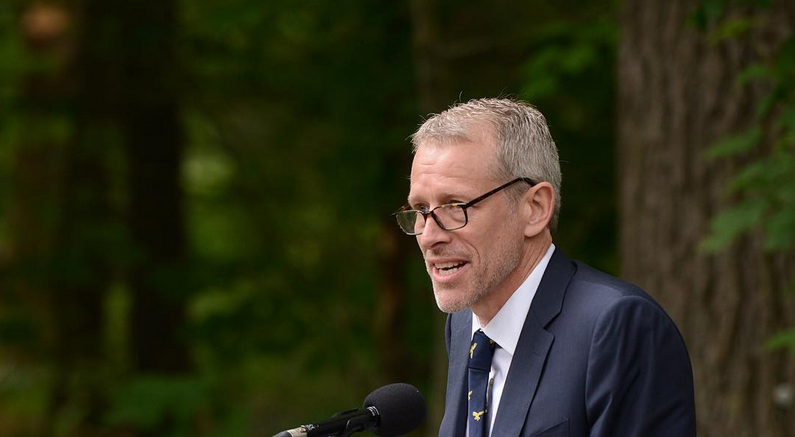TILSON: I bought these 2 stocks after Warren Buffett explained why he didn't buy them

Hedge fund manager Whitney Tilson, the founder of KASE Capital, is now long Facebook (FB) and Google’s parent company Alphabet (GOOG, GOOGL), calling them the “two greatest businesses on earth.”
An influential value investor, Tilson had previously been a Google skeptic.
He changed his mind after listening to legendary value investors Warren Buffett and Charlie Munger at the Berkshire Hathaway (BRK.A) (BRK.B) shareholder meeting, exclusively streamed in May 2017 by Yahoo Finance.
One shareholder asked Buffett and Munger about what they learned investing in technology companies.
“Well, we avoided the tech stocks, but as we felt we had no advantage there and other people did and I think that’s a good idea not to play where the other people are better, but you know, if you ask me in retrospect, what was our worst mistake in the tech field, I think we were smart enough to figure out Google,” Munger said. “Those ads worked so much better in the early days than anything else. So I would say that we failed you there and we weren’t smart enough to do it and didn’t do it. We do that all the time too.”
Buffett agreed, explaining that Geico was Google’s customer very early on.

“As I remember, we were paying them $10 or $11 a click or something like that and any time you’re paying somebody $10 or $11 every time somebody punches a little thing where you have no cost at all, you know, that’s a good business unless somebody’s going to take it away from you and so we were close-up seeing that,” Buffett said.
Tilson found clarity in their answers.
“These comments led me to ask myself why, if Buffett and Munger admit they ‘failed’ shareholders and ‘blew it’ by not buying Alphabet’s stock in the past, they didn’t fix the mistake by buying Alphabet now?” Tilson said in a new presentation. “The simple answer, perhaps, is that Alphabet was cheaper then, whereas they don’t think it’s cheap enough to buy today. But I think there’s more to it than that.”
He noted that if Buffett purchased $10.8 billion of Alphabet stock instead of IBM’s (IBM) in 2011 and was sitting on a large gain, he doubts that Buffett would be trimming or exiting the position. Alphabet’s stock has tripled since 2011.
“Rather, I think he’d be delighted to own ~$35 billion of Alphabet stock right now and would view this as one of Berkshire’s permanent stock holdings, like Coca-Cola, Wells Fargo and American Express,” Tilson said. “Triggered by this realization, I decided to take a fresh look at Alphabet and a handful of similar companies.”
He expects both Alphabet and Facebook to outperform the S&P 500 over the next five or 10 years.
Previously, Tilson’s skepticism about Google ran deep. In a 2004 column on Google, Tilson wrote that he was “quite certain that there is only a fairly shallow, narrow moat around its business.”
“Think about it. What are the odds that it is the leading search engine in five years (much less 20)? 50/50 at best, I suspect, and I’d wager that odds are at least 90% that its profit margins and growth rate will be materially lower five years from now,” Tilson wrote at the time. “Yet investors appear ready to value this company at as much as $36 billion, nearly 200 times trailing earnings! Google with the same market cap of McDonald’s (a stock I own)?! HA! I believe that it is virtually certain that Google’s stock will be highly disappointing to investors foolish enough to participate in its overhyped offering — you can hold me to that.”
He was proven wrong.
A decade later, in 2014, he admitted that it was his “worst call ever” after the stock had increased by more than 10 times. Alphabet’s stock has continued to climb and its earnings have continued to grow.
Even still, Tilson avoided buying the stock. For starters, it appeared expensive to him. He also doesn’t like to own what everyone else owns and felt “extreme regret” for not having purchased the stock.
That’s all changed, and he’s an investor now.
—
Julia La Roche is a finance reporter at Yahoo Finance. Follow her on Twitter.

